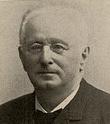Hydrocyanic-acid [Hydr-ac]
Sudden cessation of all discharges; pulselessness; cold clammy sweat; involuntary stools; starting fixed look, with dilated pupils; breathing slow, deep, gasping, difficult and spasmodic, at long intervals; hiccough; clutches at the heart as if distressed; long-lasting faints, apparently dead.
Hyoscyamus [Hyos]
Typhoid symptoms after the vomiting, diarrhoea and coldness have ceased, with dulness of sense, wandering looks; red and hot face; spasms and rumbling in abdomen; hiccough with involuntary micturition and foaming at mouth..
Ipecacuanha [Ip]
Frequent vomiting, the purging not being violent; a mild form caused by eating fat meat or sweat cake; griping, pinching pains in abdomen; (<) by motion, (>) by rest; vertigo and confusion of head.
Iris-vers [Iris]
Choleraic features; burning in mouth and fauces as if on fire; vomiting of food, then of bile, with great heat and sweat; burning distress in epigastrium; stools yellow, watery, corrosive, with burning in rectum; burning in urethra after micturition; sunken eyes; ICE-COLD TONGUE, cold limbs and cramps with rice-water stools.
Jatropha-curcas [Jatr]
FIRST STAGE OF CHOLERA BEFORE COLLAPSE SETS IN. Easy vomiting of large quantities of watery substances like albumen; watery diarrhoea, contents of rectum gush out like torrent, or EVACUATIONS THICK AND LUMPY, albuminous instead of thin and watery; anxiety, with burning at the stomach; suppression of urine; anguish, with coldness of body; viscid sweat; violent cramps in lower limbs; calves look like flat splints; abdomen flattened after many stools.
Laurocerasus [Laur]
Absence of vomiting and stools; asphyxia; coldness of body; pulselessness; cloudiness of the brain, fainting; tetanic spasms; suppression or retention of urine; sensation of constriction in the throat when swallowing.
Nicotine [Nicot]
Thirstlessness, without vomiting or diarrhoea, with icy-cold forehead, and without any sign of action in the vegetative muscles; slow, irregular, intermittent pulse; oppressed breathing; anxiety about the chest; icy coldness from the knees to the toes; paralysis of the lower extremities, with formication in the legs; dizziness, with nausea and anguish; DEATH-LIKE PALENESS OF THE FACE, WITH NAUSEA AND CLAMMY, COLD PERSPIRATION WHILE BODY IS WARM; small feeble pulse; COLDNESS IN THE ABDOMEN, with nausea and hiccough; burning in stomach, vomiting of water, only when moving; hepatic and renal region painful to touch.
Opium [Op]
Great depression of nervous centres, with stupor and coma; insensibility to the action of medicine.
Phosphoric-acid [Ph-ac]
Especially in summer season; painless, watery stools; great rumbling in abdomen; sticky tongue; bloatedness.
Phosphorus [Phos]
Violent thirst for cold water, but vomits it immediately or as soon as it becomes warm in the stomach; hiccough after eating, making the it of stomach sore and aching; profuse diarrhoea, pouring away as from a hydrant; rumbling in abdomen and debility, as a sequela to cholera.
Podophyllum [Podo]
PAINLESS CHOLERA MORBUS; stools profuse and gushing involuntary during sleep and when passing flatus, very offensive, like carrion; sense of weakness in abdomen and rectum; loss of appetite; no thirst, or great thirst; violent cramps of feet, calves and thighs; gagging or empty retching; sinking feeling at epigastrium, with sensation as if everything would drop through the pelvis; stools (<) at night and towards morning and liable to change color.
Rhus-tox [Rhus-t]
Typhoid stage. Dry, brown or black lips; constant comatose slumbering; loquacious delirium; red tip of tongue and absence of coating, but great dryness and pain in limbs; stools watery, mucous, like the washings of meat, cadaverous smelling.
Ricinus [Ric]
(Tincture of seeds).- Rice-water stools; COMPLETE ANURIA; collapse; voice changed, husky; pulse extremely small, filiform; forehead covered with cold sweat; extremities moist and cool; excessive lassitude; collapse accompanied by purging and vomiting which are violent and profuse; diarrhoea almost incessant and colliquative; anuria followed by albuminuria, urine deeply colored and highly albuminous.
Secale-corn [Sec]
The vomiting is over, but the diarrhoea continues, brownish, flocculent, colorless; AVERSION TO HEAT OR BEING COVERED, WITH ICY COLDNESS OF THE EXTREMITIES; great exhaustion and prostration; pale and sunken face; dry, thick, viscid coating of the tongue, unquenchable thirst, severe anxiety and burning at the pit of the stomach. The stools may be involuntary and unperceived, ejected with force, and where there is still vomiting it is painless, without effort and followed by great weakness. The extensors and abductors are more affected by the spasms the flexors and abductors; toes and fingers are asunder and bent backward; facial muscles especially affected, distortion of of features, mouth closed or distorted; bites her tongue; considerable dryness dryness of mouth and nose, not relieved by water; thirst for acids.
Tabacum [Tab]
Nausea and vomiting, if persistent, after purging yielded, recurring in constant paroxysms, with cold sweat, oppressed stomach, anguish and restlessness, cramp and tearing in limbs, occasional drawing in the calves; nausea, worse from slightest movement; vomiting; sometimes in a stream.
Veratrum-alb [Verat]
GREAT TORPOR OF VEGETATIVE SYSTEM WITHOUT ANY GREAT MENTAL OR SENSORY DISTURBANCE; LITTLE DEPRESSION OF SPIRITS OR ANXIETY; violent evacuation upward and downward; icy coldness of the body; great debility and cramps in the calves; vomiting, with constant desire for cold drinks; copious, watery, inodorous stools, mixed with white flocks; pale face, drinks; copious, watery, inodorous stools, mixed with white flocks; pale face, without any color; blue margins around the eyes; deathly anguish in the features; cold tongue and breath; loss of voice; great oppressive anguish in the chest giving the patient a desire to escape from the bed; violent colic, especially around the umbilicus, as if the abdomen would be torn open; the abdomen is sensitive to contact, with drawing and cramps in the fingers; wrinkled skin in the palms of the hand; retention of urine; cold sweat; rapid emaciation.


